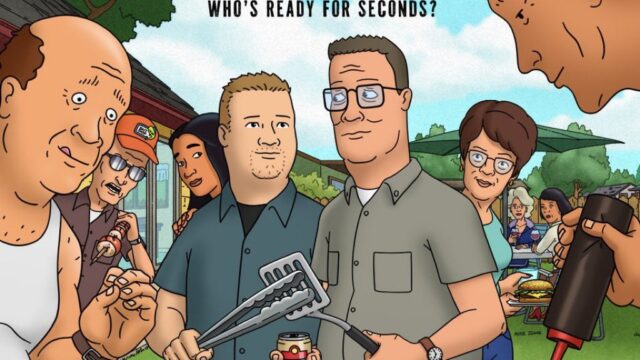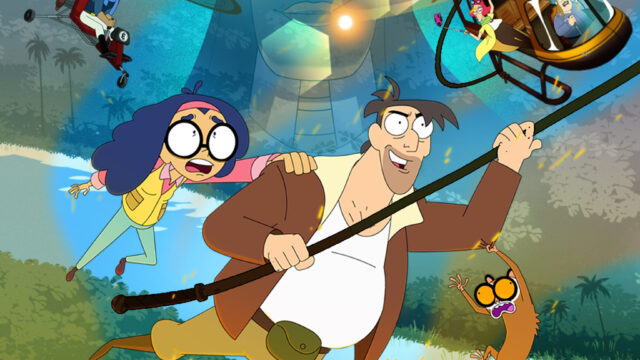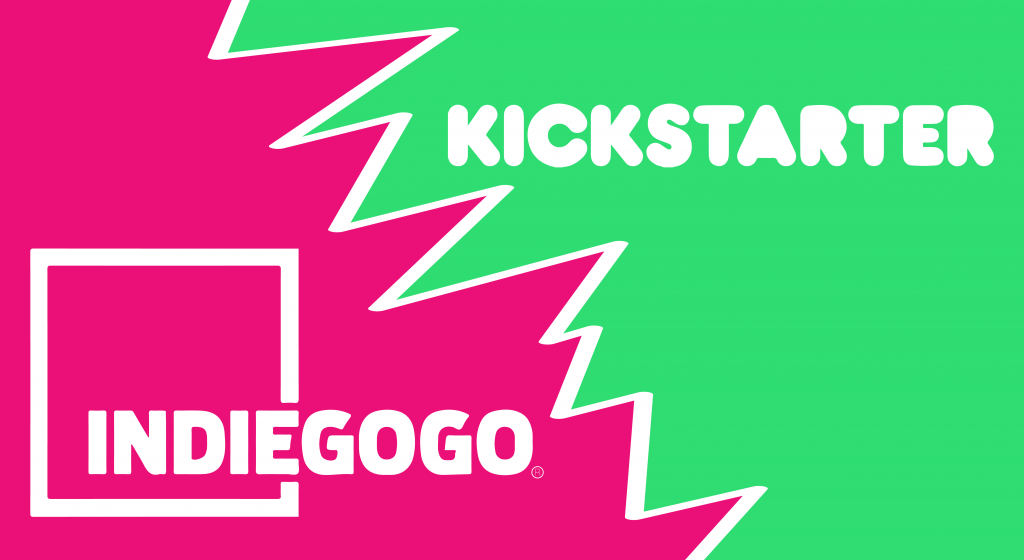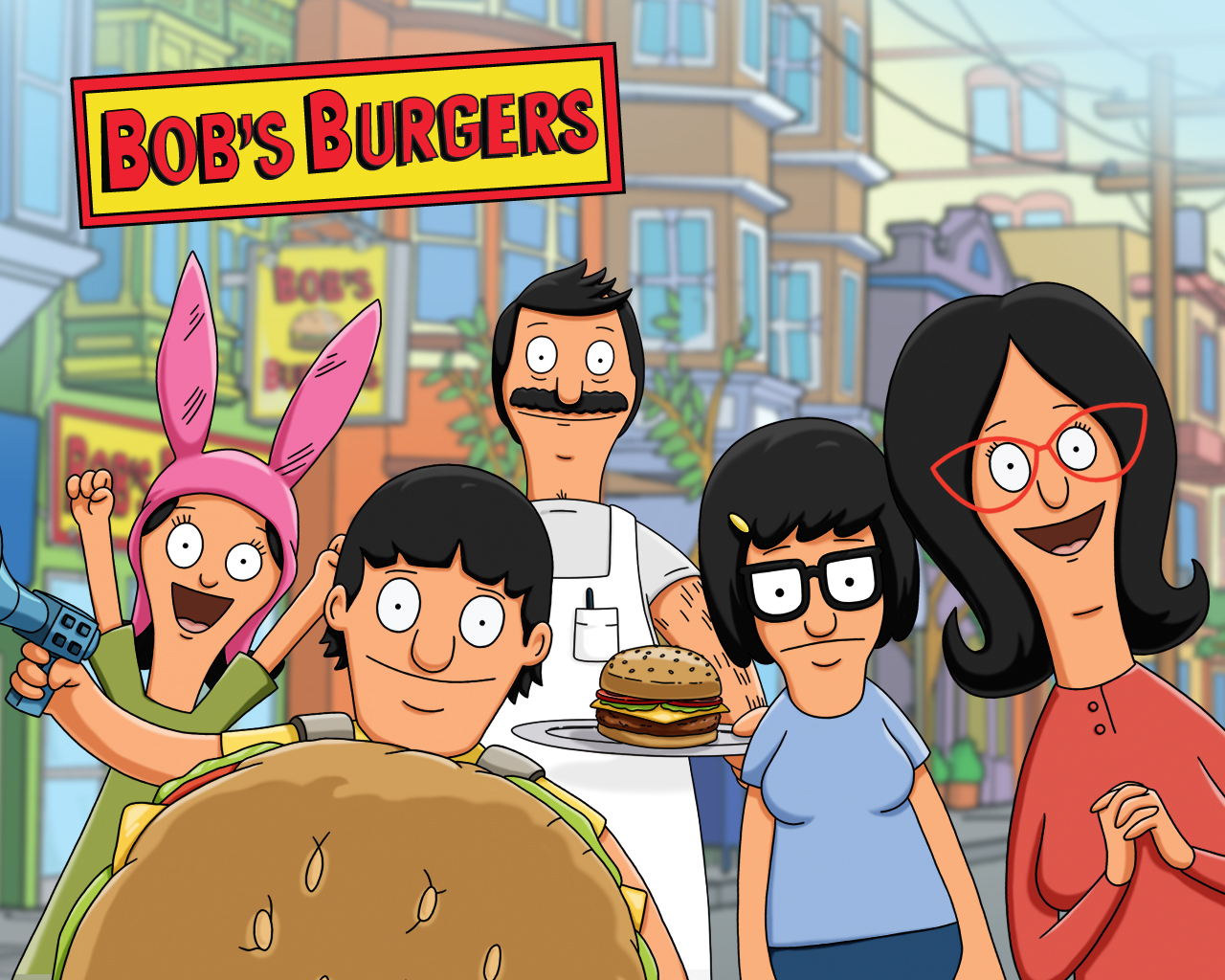Reddit AMA Recap: Trey Toy and Ari Mason from Castlevania: Nocturne
Recently during a Reddit AMA, with Trey Toy (Co-Composer) and Ari Mason (Featured Vocalist) from Castlevania: Nocturne answer various questions about the creative process of what tunes to use, what tunes were not credited, what’s their favorite pieces of Castlevania music and whether or not a soundtrack will be made?
On their favorite songs from the second season?
Trey: Oh man that is a real Sophie’s Choice. Gun to my head I’d have to say the final showdown between Richter and Drolta when he is wielding the greatsword (which was so freaking cool by the way, props to the animation team!!). I viewed this as the real moment of apotheosis for Richter’s theme. We also got to marry it with the Belmont Family theme, which I wrote back in 2018 when Trevor, Sypha and Alucard enter the Belmont Hold in season 2 of the original Castlevania series and which appears again when Trevor fights Death in season 4. I felt so special being able to bridge the gap between the original series and Nocturne and make us feel the weight of the Belmont Family throughout the centuries. That is what makes universes like Castlevania so special.
Ari: I loved being able to sing Divine Bloodlines again! And this time, Trey had me add Latin lyrics to the main melody. I did that last season for the reprise and for some chanting in the background, but on the main melody I only sang “ah.” I also love singing those beautiful lines you hear when Annette is communing with her ancestors. Trey writes some of the most beautiful lines for those moments, not just in the score for Nocturne, but some of the most beautiful I’ve ever sung.
Any composers/music you took inspiration from when you were composing music for the series?
Ari: For influences, there are so many, and I appreciated that you notice the eclecticism. Funnily enough, the inspiration for some of the more wild vocal techniques (and which is how I ended up hiring Ari was the score for White Lotus by Cristobal Tapia de Veer. As much as White Lotus and Nocturne are WORLDS apart with respect to genre, I love the experimental quality of that score; it really takes you to another place, and I wanted to score of Nocturne to do the same (albeit a gothic horror landscape in revolutionary France, not a whacky Hawaiian resort 🙂
Other influences off the top of my head include the scores for The Northman, Annihilation and Dune. I wrote some music for Diablo IV, so a lot of that was fresh in my brain as well. So much depends on what I am listening to or connecting with at the given moment.
In addition to scores I have always been a huge fan of medieval and renaissance music, which is something that Ari and I really connected on. So there is a lot of that present as well, especially in the vocal writing.
What are the names of the songs Edouard sings throughout season 2? And why did you choose to incorporate these songs specifically?
Trey: So I can’t take credit for those choices; many of those songs are in the scripts or are chosen by the production team way ahead of time. I did work with Sydney Harcourt, the actor who plays Edouard, extensively to produce those songs, but the decision to incorporate them lies with the writers/showrunners.
The opera songs this season were:
the selection from King Arthur that is mentioned below
Si dolce e’l tormento by Monteverdi
Vedro con mio diletto by Vivaldi
We also worked with a musicologist named Dr. Jean Montes on the music for Grenadye alasso, which is the Haitian revolutionary song that Edouard sings in episode 7.
Regarding music, the scores and melodies from Castlevania in its source game material carries a lot of memories and sentiments for fans of the series. Much like how music delivers emotion in theater it helps set the tension and atmosphere. So when composing the score for the show, were there any particular elements you wanted to capture and convey via your musical performances to help drive a scene? Or put another way, were there scenes that you felt carried so much emotional weight that they needed extra attention during musical composition to help convey the emotions and atmosphere in the scene? If so, which were the most difficult for you to do this with, and how did you approach this challenge?
Trey: I love how much the fans of the games connect with the music, and it is something I am very aware of throughout the process of scoring! In typical scoring practice, we often think of ourselves as secondary to the drama onscreen, and this can often lead to the subtle underscore and “wallpaper” music that accompanies many shows and movies. I was taught that if the music is doing the job correctly, you won’t notice it, which just does not cut it for a show like Castlevania. While I do agree that story is paramount, I am very aware that fans of Castlevania are paying attention to the music and hoping that it really speaks to them in the same way that the music from the games does. Unfortunately you can’t always get away with full-on video game music in a show, as there are dialog, sound effects, pacing, etc. and many other elements to consider.
That being said, I always go above and beyond to make the music for Nocturne special, and thankfully Netflix and the production team completely share that vision. In fact, after our first pass of season 1 episode 1, Netflix pushed us to make the music as unique and powerful as we could while not overpowering the onscreen drama, which is how I ended up hiring Ari.
An example of a scene tin season 2 that required extra attention was when Annette travels to the spirit world in episode 6. I don’t want to spoil exactly what happens there, but suffice to say my first version was much more typical of TV underscore and didn’t capture the emotion of the moment. I tried unshackling myself from my usual restraints and went “over the top” with bold melodies and sonic landscapes. This really unlocked the power of the moment and still makes me emotional when I watch the scene today!
What can you tell us about the process of creating and incorporating a soundtrack to Nocturne? There are so many people working on this (showrunners, directors, another composer, performers, the sound department) did you have to be in contact with all of them as a co-composer? How did your role differ this time compared to when you were working on Castlevania? How much of the music is live recorded?
Trey: I love the collaborative aspect of a television score, especially Nocturne. The entire team is so passionate about the games and the show, that it’s really such a joy to work with everyone. We are all essentially share the same creative vision, and it’s really clicked from day one. The showrunners (Kevin Kolde and Clive Bradley), the Deats’ brothers, our editor David Howe, Trevor–we all have the singular goal of making Nocturne the absolute best it can be. The whole team at Netflix has been so supportive as well and has really pushed us to make the score something special, not just another TV underscore pastiche.
My role was much more significant in Nocturne. I wrote some music for the original series and helped produce the score, but as the co-composer on Nocturne I was a part of every minute of music for the show, which was a lot more pressure but also so rewarding. I felt very grateful when Trevor asked me to co-score this show with him. The original series has a special place in my heart, so getting a chance to be as involved as I am in Nocturne is truly a dream come true. It’s not every day that film & tv composers have people even NOTICE the music, let alone listen to it passionately. It is an added layer of pressure, but I would never trade it.
There is a lot of live recording for Nocturne actually. The original Castlevania series was all “in the box,” as we say, meaning it was entirely produced in the computer with samples and software. Nocturne is a mix of electronic and live elements. We obviously have u/AriMason singing and playing all over the place. Additionally, u/donchilton plays conch shells (it’s truly the most insane thing you’ll ever see/hear) and digeridoo. The conch shell, a symbol of the Haitian revolution, is intrinsically linked to Annette’s theme. There are also a lot of live strings played by Jordi Nus and live acoustic & electric cello played by Ro Rowan. I play a lot of the electric guitar you hear, but I also hired an amazing guitarist named Matt Buscarino to shred some guitar solos in the battles in season 2 episode 7.
How did Ari approach the performances for Nocturne? Were there any elements that had to be given special care? Any challenges you faced? Did Nocturne differ any way to previous projects you’ve had, did you get to try anything new?
Ari: Season 1 and Season 2 were different for me. At the top of the first season I was still developing my “Castlevania voice,” meaning all of the different extended techniques like tongue trills and tremolos, or all of those creaky creepy sound effects in the dramatic scenes. By the second season, Trey and I had already developed a work flow and a way of communicating that worked for us, considering sometimes the material we’re sending back and forth is very large/extensive, and I wanted to broaden my voice a bit. I was using a more classically beautiful voice and vibrating more, rather than using straight tone (straight tone is a bit harder on the voice, too).
Were there any elements that had to be given special care?
Ari: Everything on this show was given special care! I think it’s because everyone who works on it is giving every element their full attention, and it just travels. Music is pretty far down on the line of production, but that attention to detail remains by the time it gets to us. Trey is writing a LOT of music for all of this, but still manages to put so much effort into each scene, so I automatically put a lot of effort in, too.
I did mention this in another reply, but I was extra careful with Divine Bloodlines. Trey told me it was going to be a huge deal, so I made sure it was my best possible performance.
Any challenges you faced?
Ari: To be honest, speaking of Divine Bloodlines, it is not an easy piece to sing. The lines are jumpy, I was singing it in both octaves and multitracking, and I had to be as precise as possible for such an important song. I had to practice it a few times first, which is something I don’t usually need to do much.
Did Nocturne differ any way to previous projects you’ve had?
Ari: Yes, Nocturne was the first major show I worked on where I was involved in almost every single cue (piece of music), and the first show that heavily featured my viola da gamba playing almost as much as my voice. I had worked closely with composers before, but to be on almost every cue is a big deal–it meant that my voice and viola da gamba playing were an essential part of the fabric of the score. When I heard the mixes I felt very exposed because I thought my voice was almost too prominent, but over time I’ve been able to get over that!
Did you get to try anything new?
Ari: Sort of. This is one of the few projects I’ve worked on where there were actually very few improvised elements, so it felt, in a way, like I was going back to my conservatory roots a little bit. I am hired maybe 75% of the time to improvise, often full improv and nothing written, so it was unusual to be given every single part. u/treytoymusic is very thorough and I really appreciate that about him, he knows what he wants most of the time (at least, from my perception) and describes every scene to me in detail when he explained how he wanted me to perform the parts. When I collaborate with composers, sometimes I am given picture (a copy of the show) to sing to, but not with this show. I didn’t really need it because of how vividly he describes everything!
If you could ever make a theme song out of any character, who would it be?
Trey: Do you mean a different character from the game? Or one from the series? From the games, I would be so happy to write a theme for Simon. From the series, I would honestly love to take another crack at Dracula if the opportunity ever presented itself.
Ari: I’d want to make a theme song for each individual night creature. They’re so imaginatively drawn, they each deserve their own!
Did you have to do any research on Castlevania to better understand what you should make?
Trey: Oh yes I did a ton of research! I played the games before working on the show, so I did have some familiarity with it, but over the years (I first started working with Trevor on season 1 of the original Castlevania in 2017), I have done a ton of work to understand the role of the music in the games, both by listening to the music (and in some cases reading the sheet music) and by playing the games themselves.
Ari: When we started on the first season of Nocturne, I did some basic research because I had never played the game or watched Castlevania before. I purposefully didn’t listen to the score or anything from the game soundtrack until we were finished, because I wanted to stick to my own approach to it and not be too influenced by what I heard. I did listen to Divine Bloodlines, but only after I was finished recording it! Trey had explained how much the song would mean to the fans, so I was really curious to hear what the original sounded like.
How did you decide upon the musical identity of Nocturne compared to its predecessor; especially with several of the recurring motifs used throughout the two seasons?
Trey: We all agreed that Nocturne should have a very distinct musical identity from the original series. Since Nocturne is very character driven, and each character has his or own individual journey/battle to fight, we wanted to make sure that the themes and sound worlds for each character was entirely distinct. Richter’s theme is classic, bold and heroic and harkens back (albeit obliquely) to some of the melodies from the original series; Maria’s theme is a rousing and revolutionary call to arms, buoyant and free; Annette’s theme is the lullaby her mother used to sing to her, played beautifully by u/donchilton on his conch shells.
These are just a few examples to illustrate that we wanted the score for Nocturne to be much more thematic than its predecessor.
Also as much as the score needed to be bold and epic, it also needed to be delicate, intimate and HUMAN, so we used live recordings of soloists much more than we did in the original. It also has a more experimental tilt to it, with much more extended techniques and strange instruments (including bowed banjo, lapsteel drones and didgeridoo (thank you again u/donchilton !!)
I personally love “Vampire Killer”–maybe someday!!
What other tracks from the games did you think about putting in or was Divine Bloodlines the only one?
The decision of what songs to use are the result of the writers, directors and production team both crafting the narrative as well as deciding what is feasible in terms of licensing. It is a long and arduous journey to get music from the game in the show, and you should definitely thank the showrunners, the Deats brothers and anyone else who is involved in that process, because they are so passionate about making it happen.
I can’t really take much credit for it to be honest. Those decisions are made before we come into the process, but it is always an absolute blast when we get the opportunity to arrange and produce a game track. It had been quite a few years since the “Bloody Tears” theme from the 2017 series.
On the creative process of Alucard’s theme.
Trey: We loved getting a chance for a fresh take on Alucard. His theme in the original series was certainly darker & more electronic, but we wanted his theme in Nocturne to convey elegance and heroism, an evolution over the centuries since first meeting Trevor and Sypha.
Was there any pressure to “go your own way” or “just redo what they did in the games!” ?
Trey: This is a great question, and it is one that I’ve struggled with since first working with Trevor on the original series in 2017.
One of the issues lies in the fundamental difference between TV scoring and video game scoring. With TV you have the arc of the story to consider, the dialog & sound effects to consider, and the fact that you are scoring in sync with the picture. With games the tracks are written on their own and then implemented into the game, looping as you play. They are very different animals. A game track almost never works in a TV show; it would feel way too big, way too over the top, and you’d never be able to follow the emotion of the storytelling. By that same token a typical TV “cue,” as we call them, would never work in a video game. It would feel small, indistinct and wouldn’t catch your ear as you play through the game. I think this is why video game soundtracks tend to be more ‘popular’ than TV soundtracks, and it is because they are designed to be HEARD, whereas TV scores are designed to serve the ON SCREEN drama, if that makes sense. There are obviously exceptions, but this has been my experience.
There is also the push-pull (to which you alluded) of doing something different/unique while at the same time staying true to the games. I have a lot of respect for the composers of the games, and to be honest trying to do what they did would only result in a half-baked imitation. All I can really do is be the best me that I can. That being said, every time I sit down to write a cue for for Nocturne I am fully aware that there are millions of people all over the world, to whom the music of Castlevania means a great deal, and I am trying my hardest to both tell the best story that I can, while at the same time fulfill the expectations of all of those fans. I hope that this comes through in the music!
Aside from the obvious inclusion of Bloodlines, were there any influences drawn from Michiru Yamane’s work that found their way into the original compositions for the show? Also, is there any particular song from the games that you’d really like to see featured in (possible) future seasons?
Trey: Michiru Yamane is absolutely brilliant. On one hand her influence is simply the pressure to live up to such monumental achievements. Stylistically one thing that comes to mind is her organ writing. We wanted the organ to feature in certain moments in Nocturne, like in the “Night Creature Creation Station” as I call it, and her organ writing was certainly an inspiration, though she is the master and I am but a humble acolyte!
What are your thoughts on the music from the Castlevania games? Do you have any you like in particular/thought about including in the show other than Divine Bloodlines?
The game music is iconic for a reason! “Vampire Killer” is my person fav, but those decisions are made far before we composers enter the process. I went into some detail about this in some posts above. Maybe we will get to hear more if there are more seasons of the show–who knows!!
Castlevania has such a rich musical history. How do you narrow down the selection for what makes it into the show?
Trey: Thankfully the pressure of that job is with the writers/directors/showrunners. As composers we have some input on what is feasible musically, but ultimately they make those decisions well before we are involved. They work so hard to get music from the games in the show, and their efforts really should be celebrated!
When can we expect to be able to purchase the score soundtracks??
Trey: We are working on it! It won’t be as quick of a turnaround as season 1, but we are working to make it happen. I don’t have a date for you unfortunately!
And finally Are there more seasons green lighted? I know you probably can’t say anything but a wink or nod would be appreciated.
Trey: We don’t know yet! Uncertainty is the name of the game in this industry. Thank you for all of the questions!!
-End of AMA-






















"There are also other characters that come and go (also owned by the Warner Bros. Discovery conglomerate media company)."
Huh. Is that just referring to other characters from the show itself, or is this implying that the new season is going to have cameos from other WBD IPs